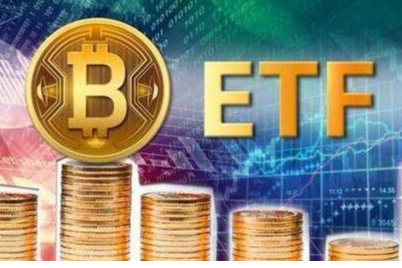Do you still remember the Bitcoin spot ETF introduced by the editor in the previous issue? This time, the editor will introduce its counterpart, the Bitcoin futures ETF.
What is a Bitcoin Futures ETF?
The Bitcoin Futures ETF is an exchange-traded fund that does not directly hold Bitcoin. It invests in Bitcoin futures contracts, which are agreements to buy or sell Bitcoin at a predetermined price on a future date. This allows investors to speculate on the future price fluctuations of Bitcoin without holding the actual asset.
For example: Suppose there is a Bitcoin futures ETF called "BitFutures," whose main objective is to track the future price of Bitcoin by purchasing Bitcoin futures contracts.
The BitFutures ETF is established and managed by a financial institution. Suppose BitFutures plans to purchase 1,000 Bitcoin futures contracts, with each contract representing the right to purchase one Bitcoin at a price of $55,000 after three months.
To raise funds for purchasing the contracts, "BitFutures" issues 10 million shares, each representing ownership of the potential profits (or losses) from these futures contracts. This means that each share represents ownership of 0.0001 of each futures contract.
Investors can purchase BitFutures stocks on a regular stock exchange, similar to buying stocks of other companies. If the market believes that the price of Bitcoin will be significantly higher than $55,000 after three months, these shares may trade at a premium. Conversely, if the market is bearish, these shares may trade at a discount.
Suppose the trading price of BitFutures is $10 per share. An investor believes that the price of Bitcoin will rise over the next three months and spends $10,000 to purchase 1,000 shares. After three months, if the futures contracts are profitable, the value of BitFutures stocks is likely to increase. If the investor's prediction is correct and the price per share rises to $12, the investment is now worth $12,000, resulting in a net profit of $2,000.
In essence, when you purchase stocks of a Bitcoin futures ETF like BitFutures, you are indirectly betting on the future price of Bitcoin, without directly holding the cryptocurrency or futures contracts. Instead, you are purchasing a portion of the fund that holds these contracts. Please note that the operation of an Ethereum futures ETF is similar to that of a Bitcoin futures ETF.
Advantages and Disadvantages of Bitcoin Futures ETF
The advantages of a Bitcoin futures ETF are similar to those of a Bitcoin spot ETF.
- Simple: Bitcoin futures ETF allows investors to gain exposure to Bitcoin price fluctuations without the need to purchase or manage Bitcoin.
- Regulated: Bitcoin futures ETF operates in a regulated environment, meaning that it must comply with the standards set by financial regulatory agencies.
- High liquidity: Additionally, they offer greater liquidity than other investment tools, allowing investors to easily buy and sell ETF shares on traditional stock exchanges.
One of the disadvantages or risks of a Bitcoin futures ETF is the lack of direct Bitcoin exposure.
- Complex market: Investors in Bitcoin futures ETFs do not directly hold Bitcoin, but rather hold shares in a fund invested in futures contracts. Because the futures market is complex, and the performance of Bitcoin futures ETFs is tied to the futures market, Bitcoin futures ETFs are also relatively complex.
- Value may not fully align with price: In addition to management fees that reduce returns, the value of Bitcoin futures ETFs may not always align with changes in the price of Bitcoin.
- Risk: Bitcoin futures ETFs also face counterparty risk, as the counterparties in the futures contracts may not fulfill their contractual obligations.
Content reference: Binance
免责声明:本文章仅代表作者个人观点,不代表本平台的立场和观点。本文章仅供信息分享,不构成对任何人的任何投资建议。用户与作者之间的任何争议,与本平台无关。如网页中刊载的文章或图片涉及侵权,请提供相关的权利证明和身份证明发送邮件到support@aicoin.com,本平台相关工作人员将会进行核查。




